Jerry B. Jenkins's Blog, page 16
February 13, 2018
How to Write a Prologue for Your Novel
Do you start your novel with a Prologue? Or do you dive right into Chapter One?
The choice can determine whether readers are drawn in or never get past the first page.
I lean away from a Prologue whenever possible. When I do use one, it’s only because there’s backstory the reader cannot do without.
That should rarely be the case.
If you do resort to a Prologue:
1—Don’t label it as such. Readers tend to skip preliminary material. Let them be pleasantly surprised when they come to the end of it and find Chapter One.
2—Don’t use it as an excuse to do something you wouldn’t do on page one, chapter one. It should be every bit as engaging as your opener, all showing and no telling.
What a Prologue Is Not
A preview
A scene from the middle of the story
Facts you could weave into the story
An information dump
Use a Prologue only to motivate the reader to keep reading.
Do You Really Need a Prologue?
Determine this by asking yourself:
Do I have information the reader absolutely must have before Chapter One?
Ideally, you want to work everything into the first chapter and, as Les Edgerton implies in his writing book Hooked, don’t underestimate your reader.
Too many beginning novelists, he says, don’t give readers enough credit to be able to deduce what’s going on without all manner of backstory.
Naturally, he leans away from Prologues and toward strong hints at backstory in your opening chapter, setups that will be paid off later.
My Best Tip for Writing an Effective Prologue
Make it captivating—a scene as strong as any in your novel.
This becomes your opener, carrying with it all the import your first few paragraphs demand. This is not the place for narrative summary. Grab readers with an evocative scene that forces them to keep turning pages.
If your Prologue fails, you’ve likely lost your readers for good.
Prologue Examples
The Valley of the Dry Bones by yours truly
The Bourne Identity by Robert Ludlum
Romeo and Juliet by William Shakespeare
Water for Elephants by Sara Gruen (one of my favorites)
Where do you stand on Prologues? Tell me below.
Related Posts:
How to Write a Book: Everything You Need to Know in 20 Steps
How to Overcome Writer’s Block Once and For All: My Surprising Solution
41 Writing Tips Experts Wish They’d Known As Beginners
The post How to Write a Prologue for Your Novel appeared first on Jerry Jenkins | Proven Writing Tips.
January 30, 2018
Writing Tips 40 Experts Wish They’d Known as Beginners
How I wish I had known as a teenager what I know now!
At 19 I worked full-time as a sportswriter for a daily newspaper.
I loved my job, but I was ambitious and wanted to see if I could sell a story to the Features editor. I worked hard on one, on my own time, and submitted it with photos.
The editor’s response crushed me.
In red pencil at the top of the first page, he’d scribbled:
“Great pictures. Bad story.”
Humiliated, I forced myself to approach his desk.
“Sir,” I said, “could you tell me what’s wrong with this so I can fix it?”
“Sure, Jenkins,” he said. “It’s sh–.”
I staggered back to my boss, the Sports Editor, and told her what had happened.
“Did you have any misgivings about the piece?” she said.
I mentioned several things I could have done better.
“There you go. Anything you thought you should have done is what you ought to do.”
I rewrote the piece that night and resubmitted it the next day. The Features editor immediately accepted it.
My mistake? I had submitted a piece of writing that was less than my best, and I knew it. I vowed to never do that again.
The thought of being able to tell my younger self what I know now prompted me to ask 39 of the best authors, writing coaches, and publishing experts I know:
“If you could go back to the beginning of your writing career and give yourself one piece of advice, what would it be?”
And I added one of my own to make it 40.
Crucial Writing Advice for Beginners
1. Lisa Cron , author of Wired for Story
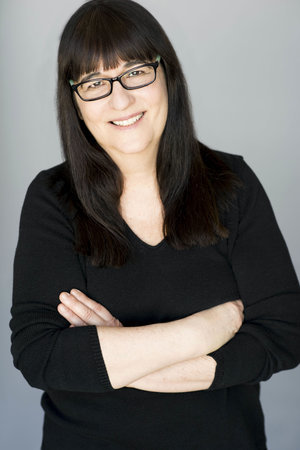
I’d tell myself that what grabs readers isn’t beautiful writing, a rip-roaring plot, or surface drama; what grabs readers is what gives those things their meaning and power: the story itself.
And so first you have to create the story, which doesn’t start on page one, but long before it. Because the story is not about an external plot-level change. The story is about an internal change — a change that the protagonist enters the story already needing to make. Thus the protagonist walks onto the first page with a long standing driving desire — an agenda — that she hasn’t been able to achieve because an equally long standing misbelief (about human nature) stands in her way.
And here’s the last thing I wish I’d known: backstory is the most fundamental, present, and meaningful foundation of the story. Or as Faulkner said, “The past isn’t dead. It isn’t even past.”
2. Jane Friedman , writing and publishing coach/blogger

Establish a reading habit that matches roughly what you hope to write and publish. Make it as important as anything else you schedule in your day, and never allow busyness to crowd out the time you devote to consuming other good works.
It’s fine not to finish books or to abandon authors you don’t like, but never stop consuming the genre you want become known in. It raises your writerly IQ and ultimately lays the foundation for better literary citizenship and networking with other authors, editors, and agents. A non-reader is soon outed and left behind in this business.
3. Joe Bunting , founder of The Write Practice

Always be learning.
You think you’re pretty talented. You think you’re pretty smart. And you are. But the best way to fail at being a writer is to spend all your time proving you know what you’re doing rather than learning from the people and resources around you.
Stop posturing. Start practicing. And have fun.
4. Dave Chesson , founder of Kindlepreneur

Start your email list as soon as you can. I spent a couple of years not doing an email list and I can’t help but wonder how many thousands of readers I lost the ability to reach out to because I didn’t start it sooner.
There is no greater book marketing kickstart than sending a new book launch email to your already raving fans.
They’ll buy it, and even leave those crucial reviews. So, if you decide you’re going to write more than one book, setting up your email list as soon as possible is key to growing your success with each book you write.
5. Bridget McNulty , co-founder of Now Novel
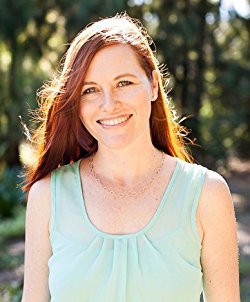
Getting published is really exciting, but it’s not the point of writing.
The actual writing is what it’s all about — the daily joy in sitting down to a blank page and crafting something beautiful or funny or heartwrenching or even just blah (depending on the day).
While getting a book (and articles, and stories) published is a great ego boost, the real meaning in writing comes from the words flowing out of your fingertips — and the sense of achievement in a finished project.
6. Randy Ingermanson , novelist and creator of The Snowflake Method of plotting

You get good at writing by following these three simple steps:
1) Write a lot. The more you write, the more you’ll tune in to your unique voice and the better you’ll get.
2) Get critiqued occasionally. You should never pay any attention to what your mother says about your writing, or what anyone who loves you says about your writing, because all those people are liars. You should pay attention only to people who know what good writing is and who also know how to critique bad writing. Many who know good writing don’t have any idea how to critique bad writing and will not be able to help you.
Also be aware that many people who know how to critique bad writing would not recognize good writing if it stabbed them in the eye. This is tragic, but deal with it. You are looking for somebody who has both of these skills, and those people are rare.
You need to be told when your writing is bad and why it’s bad, because when you start writing, your work will be awful and you will imagine it’s brilliant. You also need to be told when your writing is brilliant, because by the time your writing is brilliant, you will have been told so many times that your writing is bad that you’ll imagine you are the worst writer who ever lived.
It’s just a fact that all bad writers think they are amazing and all great writers think they are terrible. And that’s why you need to be critiqued occasionally. Don’t do this every day. It hurts too much. A little critique goes a long way.
3) Study the craft of writing in books, lectures, or wherever else you can learn it. You most especially need to do this after getting critiqued.
You can’t figure it out on your own. Find a book that explains in clear words how to do right what you are doing wrong. When you finish the book, you will again believe in yourself enough to go back to step 1 and write a bunch more.
And have fun!
Need help fine-tuning your writing? Click here to download my free self-editing checklist.
7. K.M. Weiland , novelist and writing coach

I would want my younger self to realize that as wonderful as publication is, it isn’t the point of the writing process.
It’s just a stop along the road. Writing is more about the journey than the destination. As award-winning author Anne Lamott points out, “Being published isn’t all it’s cracked up to be. Writing is.” So don’t let your non-published status get you down. Just enjoy where you are right now.
8. Bryan Collins , writing coach

I’d say start publishing your work online and showing it to people even if it’s not ready or perfect.
I spent years writing short stories and trying to get my sentences just right. I rarely showed them to anyone and I didn’t get the feedback I needed to improve as a writer. Instead, I stuffed my drafts in a drawer.
It was only after I started writing online that I discovered I’m better at — and prefer — writing non-fiction. If I’d learnt that lesson ten years ago, I would have saved myself a lot of time.
Still, sometimes you have to make mistakes to fall forward.
9. Rachelle Gardner , literary agent

Take your time.
There’s no rush to get published.
The more time you spend writing, reading, and learning to be a better writer, the better things will go for you.
Don’t try to hurry it along.
10. Ann Handley , author of Everybody Writes

I’d tell myself that the best writing serves the reader — not the writer.
Our job as writers is to make more sense of the world, to paraphrase Anne Lamott and E.B. White and a million other writers.
So even when you’re writing about your own life and your own experiences from your own point of view, you’re nonetheless exposing something real and true and universal.
So make each sentence (and every word in that sentence) earn its keep: Is this sentence indulgent? Or does it help the reader? Does it explain, elucidate, or elevate the truth?
Get out of your head and into your reader’s.
11. Joanna Penn , novelist and writing coach

Schedule time to write, show up for that meeting with yourself, and put words onto the page.
It doesn’t matter if those words aren’t very good — they probably won’t be, but that’s OK because you can make them better when you edit them later.
But you can’t edit a blank page, so get your butt into the chair and write!
Need help with time management? Click here to download my free guide: How to Maximize Your Writing Time.
12. Gabriela Pereira , author and founder of DIY MFA

I would say: “Dream big, execute small.”
These words of wisdom are not my own but they have become a mantra for me.
Creative success requires both a big vision and small, deliberate steps.
Audacious goals aren’t reached without persistent action.
13. Joel Friedlander , founder of The Book Designer

Getting into the habit of sitting down and writing every day is essential.
A writer is someone who writes, and the only path to improving your craft and finding both satisfaction and success in your writing is to keep doing it.
Try to write at the same time each day, and don’t worry too much about whether what your writing is good or not — just keep writing.
14. Lisa Tener , book development coach
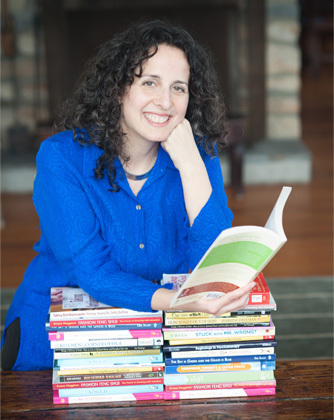
Develop your spiritual practices.
They are the greatest support for your writing and your creativity.
With them, you will write with greater ease, break through blocks more easily, and have the stamina to write consistently and from your heart.
15. Carol Tice , founder of Make a Living Writing

Dive in and be scared later.
Simply take action and don’t overthink where this might end up.
Think of something scarier than writing your piece, and it’ll be a breeze by comparison.
Instead of feeling scared to take action, think of everything you do as a writer like it’s a science experiment. “I’ll write this and send it off and see what happens, mwahaha.” Then, learn from that and do better.
16. C.S. Lakin , author and writing coach

I would say to myself: “You are way too cocky.
You think you know how to write a novel because you’ve read thousands of them. You need to stop trying to publish your terrible manuscript and spend time learning the craft.
There is actually a thing called structure, and you don’t know it.
Get every good book there is on writing craft, attend workshops and retreats, and, for God’s sake, be humble! Take advice. Be teachable.”
17. Tara Lazar , children’s author
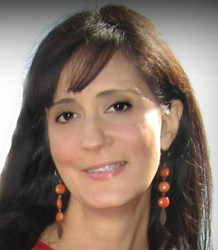
Stop being in such a rush. Slow down and work on your craft.
I wanted the agent and the deal to happen immediately. Yesterday.
Read. Write. Learn.
It will happen for you if you take the time to master your craft.
18. James Scott Bell , novelist and writing coach
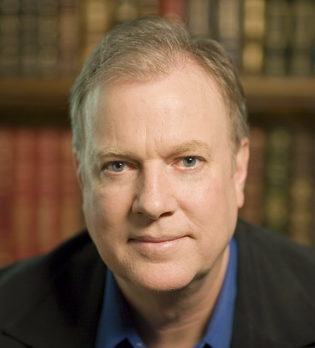
Don’t be so impatient!
It takes time to develop your craft.
You spent your 20s believing what so many told you, that you can’t learn to write. But then you tried, and you discovered you CAN learn.
Keep learning. Keep writing.
Want to write a book but don’t know where to start? Click here to download my free guide: How to Write a Book: Everything You Need to Know in 20 Steps.
19. Debbie Ohi , children’s author

Don’t use your introversion as an excuse.
Yes, you may prefer to hide out in your creative cave, dreading learning to network and talk to people you don’t know. If you get out and starting practicing now, then your path will be that much smoother.
Start by joining the writers groups and getting to know others in the community.
It may be terrifying at first but it will get easier, and you’ll be surprised at how much fun you’ll have, the friends you’ll make.
20. Jennie Nash , founder of Author Accelerator
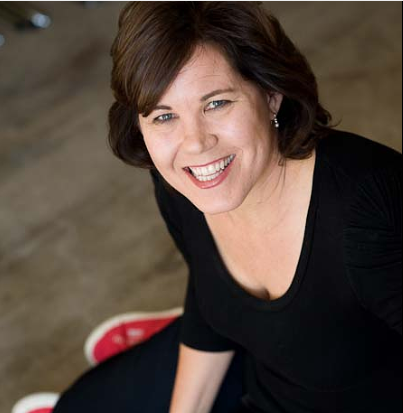
I would tell my younger self to listen to the wise elders who told me that I could make a career in the writing world.
I spent so long doubting myself, and making excuses, and waiting for someone to roll out a red carpet, and circling around the actual writing by doing jobs that were “writing adjacent.” All that delay and doubt cost me.
I recently launched a book coaching company, and we inspire writers to believe they can actually do it, and help them take the steps toward making their dreams a reality.
It feels like I’ve come full circle.
21. Chris Fabry , novelist and radio host, author of Under a Cloudless Sky

I would actually go back to my childhood and encourage myself to pay more attention to details.
Listen and observe more closely.
You think sitting at your grandmother’s kitchen table and listening to your uncles tell stories is fun.
These are seeds being sown into your soul. Soak up everything. You will use all you’re hearing, seeing, touching, tasting, and smelling.
When you’re an author you will draw from these holy moments. All great storytelling begins in childhood.
[Chris’s blog on how to make it as a writer.]
22. Les Edgerton , novelist and writing coach
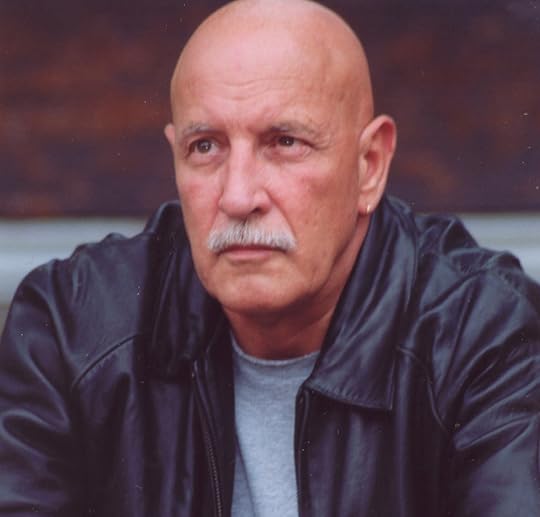
In Jim Harrison’s words:
“Read the whole of western literature for the past 400 years.
If time allows, read the whole of eastern literature for the same time period.
For, if one cannot tell what passed for good in the past, one cannot tell what passes for good now.”
23. DiAnn Mills , novelist and writing coach
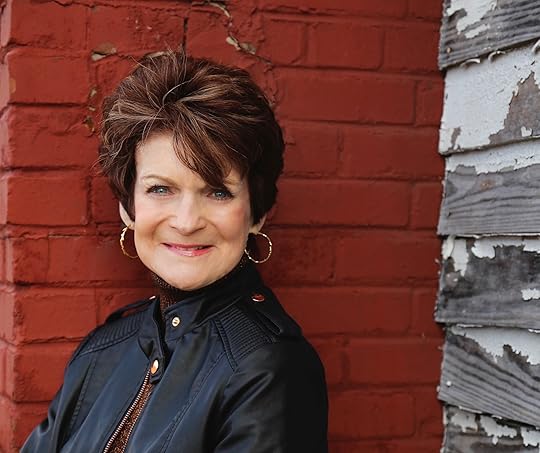
I would tell myself that my writing career isn’t about me.
True success can never be about the writer.
Fulfilling the calling is about reaching readers with an excellent story that entertains, inspires, and encourages.
Writing is about putting reader needs first, which means constantly educating myself in the craft, social media, and the publishing industry.
24. Angela Hunt , author and writing coach
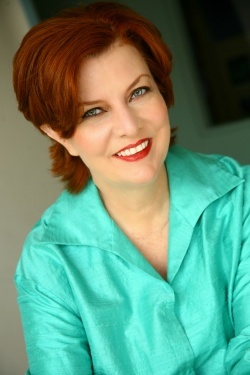
The experts don’t always know best.
You can build a readership of people who like to read in different genres.
You have to stop writing sometimes to have a life that will fuel your writing. Other avocations can scratch a different creative itch and fuel your writing as well.
Fast writing might be sloppy writing, but it ends with a result that can be cleaned up and rewritten as many times as necessary. Go at your own pace, but go!
Writing is hard.
Anyone can string words together, but imbuing those words with the power to touch a heart and change a life — that takes work, talent, and skill. And perseverance. Most of all, perseverance.
25. Steve Laube , literary agent

There is no such thing as an instant book.
A book can be published quickly, but that is the exception, not the rule.
26. Philip Yancey , author

“Do not attempt this act alone.”
Yes, writing is a solitary act, performed in isolation. But the editing process needs different sets of eyes to help clarify the writer’s vision and meaning.
The grouchiest curmudgeons make the best editors; praise feels good, but only criticism helps me improve.
27. Gloria Kempton , author and writing coach

My advice to my new writing self would be the mythologist, Joseph Campbell’s, words, Follow your bliss: “Gloria, rather than following publishing trends or dictates of the Christian publishing industry, stay close to your personal truth as it comes to you when you sit down to write. Listen, not to the many publishing ’experts’ about how to craft your message, and how to sneak that message into everything you write.
Instead, explore the questions that rise within your soul that will lead you to a more meaningful writing path, one of integrity and passion for the truth that is uniquely yours as a child of God.
When you sit down to write, assume you know nothing. Become curious. Investigate. Inquire. Your mission is not to tell readers who they are and what they should believe; your mission is to ask the important questions and give readers the opportunity to explore those for themselves.”
Need help fine-tuning your writing? Click here to download my free self-editing checklist.
28. Allen Arnold , author, speaker, former publisher

I would tell my younger self that no great art was ever created without great heart.
In the creative process, the heart of the storyteller takes priority over everything else including formulas, word count, social media, and productivity.
So, first live well; then write well.
Allow God to awaken your own hearts before you ask your art to stir the hearts of others. That will infuse your stories with an eternal spark that transcends you and transforms others.
29. Saundra Dalton-Smith , author, speaker, physician

Focus on establishing a relationship with potential readers before you consider writing a book.
Blog, share on YouTube, participate in social media, or even have an email newsletter list.
Start building your tribe years before writing the first book proposal.
Your unique story will draw your tribe to you. The more your readers feel they are part of your story the more likely they are to share with others.
30. Becca Puglisi , author of The Emotion Thesaurus

Don’t be afraid to say Yes.
The journey to becoming a writer can be daunting. There’s so much to do and learn, and it’s easy to look at other opportunities as distractions, particularly if you’re not totally comfortable doing them. Step out of your comfort zone and stretch yourself.
New challenges will grow you as a author and take you farther than you imagined possible. Saying Yes might be the first step in mastering a difficult area of the craft, expanding your writing options, meeting other authors who will be integral to your growth, becoming an international speaker, or selling way more books than you ever thought possible.
So when an opportunity presents itself that might seem scary or even impossible, don’t dismiss it outright. Instead, consider what it might offer. Will it teach you a worthwhile skill, give you a chance to try something new, or require you to do something that makes you nervous? If so, it might be a good idea after all.
31. William Noble , author and writing coach, attorney
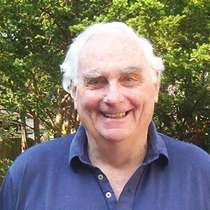
Don’t assume you must follow a predetermined writer’s path, that you will be a novelist or a poet or a playwright or a journalist, and you will concentrate on this form of writing only.
Try all forms of writing, don’t pre-type yourself, produce fiction, creative nonfiction, poetry, playscripts, essays, profiles, humor, memoir, and biography.
Eventually, the shape of your talent will emerge from how you have tested yourself.
32. Steven James , author and speaker
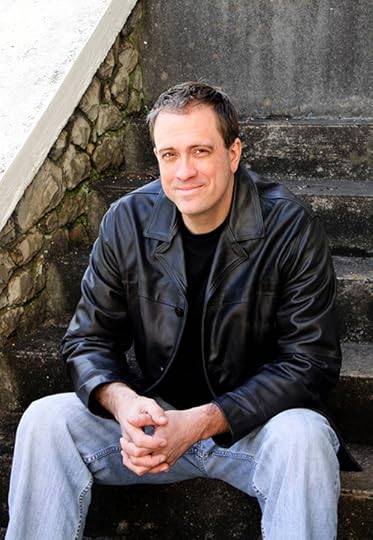
I would confirm to my younger self that story always trumps structure.
Numerous books tell how to plot and structure a story; however, these can end up derailing the story.
It’s tempting to utilize them instead of following the organic process of story shaping, but it’s vital that you let the story inform the direction of your writing. Fear will always drive you back to an outline.
Part of the artistic process is learning to channel that fear into creativity and not confine yourself because of it.
33. Michele Cushatt , author, speaker, emcee

Write for the love of writing itself, not what writing might afford you.
The writers who endure are those who can’t not write, the ones for whom contracts and publication are secondary rewards.
Rather than aiming at recognition, they chase understanding. They lean into the struggle, learn to marvel at the untangling of complexities and the transcendence of unforgettable stories.
Writing holds the power to transform you and the way you see the world in a way few other human experiences can. This is the real reward, the one that lasts long after the lights go out.
34. Marion Roach Smith , memoir writing coach

“Discipline.”
The clear, hard, cold fact is that without discipline all the inspiration and rituals, lucky pencils, good views out the window, and all those other things you think you have to have before you write, won’t bring you anything of value. They simply will not sustain you the way discipline will.
I’d tell myself that with humor and grace, however, and not a bit sternly.
No young writer should be spoken to with the least amount of stern admonition, but rather with enormous encouragement and support.
Need help with time management? Click here to download my free guide: How to Maximize Your Writing Time.
35. Patricia Raybon , author, writer, teacher
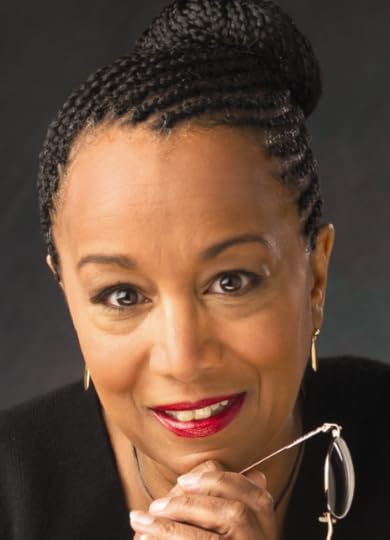
Write daily. But not just for productivity. Write to discover yourself, getting reintroduced to the human being you’re blessed to be — that person indwelled with something of value to offer the world.
Don’t publish daily. Rather, publish regularly — fine-tuning what you want to say to the world and how to say it.
Bluster, brawling and bravado? No. Kindness, motivation and encouragement. Yes.
Even as I write this reflection for author friend Jerry Jenkins, I’m reminded why daily writing matters. It’s a bonus tool — helping unearth your brand, purpose, message, values, and audience. Therefore, write. In journals. In letters. On the grocery list taped to your refrigerator. Write something down. Today. You’ll grow as a writer. Even better? You’ll grow as a person. Your readers and your career will thank you.
36. Brandilyn Collins , novelist and writing teacher

Brandilyn, you’re embarking on a very difficult journey.
You’ll have some highs and lots of lows. The writing business/industry will be all over the map, and no matter what you sell, you’re likely to always want more.
Remember — this is not about you. Your writing for the Christian market — writing novels that portray God’s grace and power — is for Him.
God will do with these books as He chooses. God will use the words you write to change people’s lives for eternity. And that’s something no price tag could ever cover.
Follow His will for your writing. Continue to work hard on your craft. Work hard on marketing. Give God your best. Then leave the results to Him.
37. Julie Duffy , founder of Story a Day

Don’t wait to write until you’re older/wiser/invited to the party.
Don’t wait until you have something “important” to say. You are living now, and you’ll never be able to recapture the feeling of being 15, 22, 36…not really. The things that matter to you now, won’t matter in the same way when you’re older, and the things that matter to you when you’re older won’t necessarily be more important. You might know more, but that won’t make you more interesting or important. Write now.
Don’t wait, because when you do have something important to say, you won’t want your writing to be rusty. Your writing will change and evolve, and when you get stuck you will seek out the mentors and teachers you need to move you to the next stage.
Don’t wait, because the best ideas come when you’re writing. You will never, never run out of ideas, as long as you keep writing.
Don’t wait for anyone to tell you to write. Whether or not anyone ever pays you to write, or asks you to contribute, or gives you permission to sneak off and steal an hour or two to tell stories on paper, writing is a part of you. You are more fully yourself when you accept and embrace that. You’re easier to live with when you’re writing, so claim the time you need, and don’t wait. Make it a priority to do the writing, rather than to worry about whether you’ll ever make a career of it. Don’t put the cart before the horse, my girl!
Oh, and you’re going to love this thing called the Internet.
38. Randy Alcorn , inspirational author
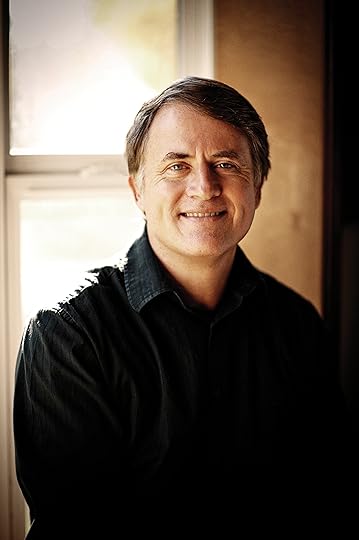
Write only those books you are absolutely convinced God wants you to. Not just books that are good ideas, but ideas that you’re personally passionate about and fit your heart, convictions, wiring, and style, not someone else’s.
It’s great to listen to publishers and others, hear their ideas, and modify yours as long as you can retain a sense of ownership so it really remains your book. Never write a book you can’t pour yourself into 100%. Even 90% isn’t enough, because when you hit the rough spots, your heart needs to be totally in it.
39. Jessica Strawser , author and editor-at-large, Writer’s Digest

Having since learned the power of tapping into networks of fellow writers — through genre-based organizations, conferences, Facebook groups, in-person groups, any way you can — my advice would be to find and grow your tribe as early and as well as you’re able.
Their support will buoy you at every stage, and through giving as good as you get, you’ll stay connected to the joy of the craft even when you’re feeling the heat beyond the page.
40. Jerry Jenkins , novelist and biographer, owner, Jerry Jenkins Writers Guild
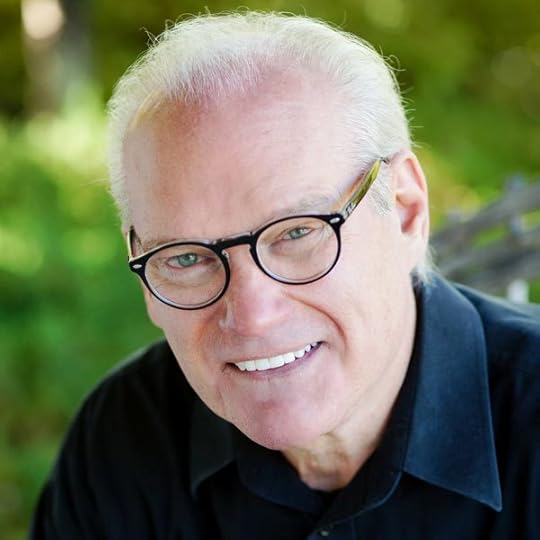
Before submitting anything, be sure you’re happy with every word.
Become an aggressive, even ferocious self-editor.
Click here for my guide on this subject. And here for information on my Writers Guild.
In the comments below, tell me which writing tip stood out most to you and why.
Related Posts:
How to Write a Book: Everything You Need to Know in 20 Steps
How to Overcome Writer’s Block Once and For All: My Surprising Solution
How to Write a Novel: A 12-Step Guide
The post Writing Tips 40 Experts Wish They’d Known as Beginners appeared first on Jerry Jenkins | Proven Writing Tips.
Writing Tips 41 Experts Wish They’d Known as Beginners
How I wish I had known as a teenager what I know now!
At 19 I worked full-time as a sportswriter for a daily newspaper.
I loved my job, but I was ambitious and wanted to see if I could sell a story to the Features editor. I worked hard on one, on my own time, and submitted it with photos.
The editor’s response crushed me.
In red pencil at the top of the first page, he’d scribbled:
“Great pictures. Bad story.”
Humiliated, I forced myself to approach his desk.
“Sir,” I said, “could you tell me what’s wrong with this so I can fix it?”
“Sure, Jenkins,” he said. “It’s sh–.”
I staggered back to my boss, the Sports Editor, and told her what had happened.
“Did you have any misgivings about the piece?” she said.
I mentioned several things I could have done better.
“There you go. Anything you thought you should have done is what you ought to do.”
I rewrote the piece that night and resubmitted it the next day. The Features editor immediately accepted it.
My mistake? I had submitted a piece of writing that was less than my best, and I knew it. I vowed to never do that again.
The thought of being able to tell my younger self what I know now prompted me to ask 40 of the best authors, writing coaches, and publishing experts I know:
“If you could go back to the beginning of your writing career and give yourself one piece of advice, what would it be?”
And I added one of my own to make it 41.
Crucial Writing Advice for Beginners
1. Lisa Cron , author of Wired for Story
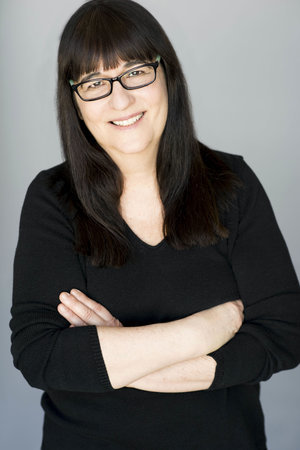
I’d tell myself that what grabs readers isn’t beautiful writing, a rip-roaring plot, or surface drama; what grabs readers is what gives those things their meaning and power: the story itself.
And so first you have to create the story, which doesn’t start on page one, but long before it. Because the story is not about an external plot-level change. The story is about an internal change — a change that the protagonist enters the story already needing to make. Thus the protagonist walks onto the first page with a long standing driving desire — an agenda — that she hasn’t been able to achieve because an equally long standing misbelief (about human nature) stands in her way.
And here’s the last thing I wish I’d known: backstory is the most fundamental, present, and meaningful foundation of the story. Or as Faulkner said, “The past isn’t dead. It isn’t even past.”
2. Jane Friedman , writing and publishing coach/blogger

Establish a reading habit that matches roughly what you hope to write and publish. Make it as important as anything else you schedule in your day, and never allow busyness to crowd out the time you devote to consuming other good works.
It’s fine not to finish books or to abandon authors you don’t like, but never stop consuming the genre you want become known in. It raises your writerly IQ and ultimately lays the foundation for better literary citizenship and networking with other authors, editors, and agents. A non-reader is soon outed and left behind in this business.
3. Joe Bunting , founder of The Write Practice

Always be learning.
You think you’re pretty talented. You think you’re pretty smart. And you are. But the best way to fail at being a writer is to spend all your time proving you know what you’re doing rather than learning from the people and resources around you.
Stop posturing. Start practicing. And have fun.
4. Dave Chesson , founder of Kindlepreneur

Start your email list as soon as you can. I spent a couple of years not doing an email list and I can’t help but wonder how many thousands of readers I lost the ability to reach out to because I didn’t start it sooner.
There is no greater book marketing kickstart than sending a new book launch email to your already raving fans.
They’ll buy it, and even leave those crucial reviews. So, if you decide you’re going to write more than one book, setting up your email list as soon as possible is key to growing your success with each book you write.
5. Bridget McNulty , co-founder of Now Novel
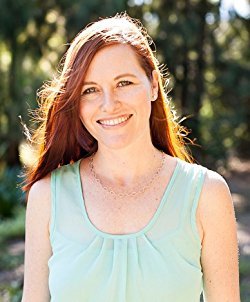
Getting published is really exciting, but it’s not the point of writing.
The actual writing is what it’s all about — the daily joy in sitting down to a blank page and crafting something beautiful or funny or heartwrenching or even just blah (depending on the day).
While getting a book (and articles, and stories) published is a great ego boost, the real meaning in writing comes from the words flowing out of your fingertips — and the sense of achievement in a finished project.
6. Randy Ingermanson , novelist and creator of The Snowflake Method of plotting

You get good at writing by following these three simple steps:
1) Write a lot. The more you write, the more you’ll tune in to your unique voice and the better you’ll get.
2) Get critiqued occasionally. You should never pay any attention to what your mother says about your writing, or what anyone who loves you says about your writing, because all those people are liars. You should pay attention only to people who know what good writing is and who also know how to critique bad writing. Many who know good writing don’t have any idea how to critique bad writing and will not be able to help you.
Also be aware that many people who know how to critique bad writing would not recognize good writing if it stabbed them in the eye. This is tragic, but deal with it. You are looking for somebody who has both of these skills, and those people are rare.
You need to be told when your writing is bad and why it’s bad, because when you start writing, your work will be awful and you will imagine it’s brilliant. You also need to be told when your writing is brilliant, because by the time your writing is brilliant, you will have been told so many times that your writing is bad that you’ll imagine you are the worst writer who ever lived.
It’s just a fact that all bad writers think they are amazing and all great writers think they are terrible. And that’s why you need to be critiqued occasionally. Don’t do this every day. It hurts too much. A little critique goes a long way.
3) Study the craft of writing in books, lectures, or wherever else you can learn it. You most especially need to do this after getting critiqued.
You can’t figure it out on your own. Find a book that explains in clear words how to do right what you are doing wrong. When you finish the book, you will again believe in yourself enough to go back to step 1 and write a bunch more.
And have fun!
7. K.M. Weiland , novelist and writing coach

I would want my younger self to realize that as wonderful as publication is, it isn’t the point of the writing process.
It’s just a stop along the road. Writing is more about the journey than the destination. As award-winning author Anne Lamott points out, “Being published isn’t all it’s cracked up to be. Writing is.” So don’t let your non-published status get you down. Just enjoy where you are right now.
8. Bryan Collins , writing coach

I’d say start publishing your work online and showing it to people even if it’s not ready or perfect.
I spent years writing short stories and trying to get my sentences just right. I rarely showed them to anyone and I didn’t get the feedback I needed to improve as a writer. Instead, I stuffed my drafts in a drawer.
It was only after I started writing online that I discovered I’m better at — and prefer — writing non-fiction. If I’d learnt that lesson ten years ago, I would have saved myself a lot of time.
Still, sometimes you have to make mistakes to fall forward.
9. Rachelle Gardner , literary agent
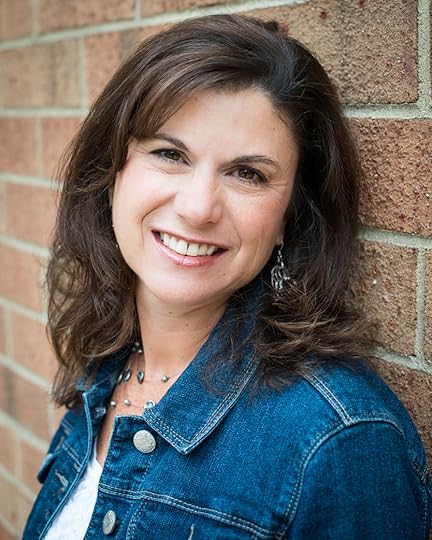
Take your time.
There’s no rush to get published.
The more time you spend writing, reading, and learning to be a better writer, the better things will go for you.
Don’t try to hurry it along.
10. Ann Handley , author of Everybody Writes

I’d tell myself that the best writing serves the reader — not the writer.
Our job as writers is to make more sense of the world, to paraphrase Anne Lamott and E.B. White and a million other writers.
So even when you’re writing about your own life and your own experiences from your own point of view, you’re nonetheless exposing something real and true and universal.
So make each sentence (and every word in that sentence) earn its keep: Is this sentence indulgent? Or does it help the reader? Does it explain, elucidate, or elevate the truth?
Get out of your head and into your reader’s.
11. Joanna Penn , novelist and writing coach

Schedule time to write, show up for that meeting with yourself, and put words onto the page.
It doesn’t matter if those words aren’t very good — they probably won’t be, but that’s OK because you can make them better when you edit them later.
But you can’t edit a blank page, so get your butt into the chair and write!
12. Gabriela Pereira , author and founder of DIY MFA

I would say: “Dream big, execute small.”
These words of wisdom are not my own but they have become a mantra for me.
Creative success requires both a big vision and small, deliberate steps.
Audacious goals aren’t reached without persistent action.
13. Joel Friedlander , founder of The Book Designer

Getting into the habit of sitting down and writing every day is essential.
A writer is someone who writes, and the only path to improving your craft and finding both satisfaction and success in your writing is to keep doing it.
Try to write at the same time each day, and don’t worry too much about whether what your writing is good or not — just keep writing.
14. Lisa Tener , book development coach
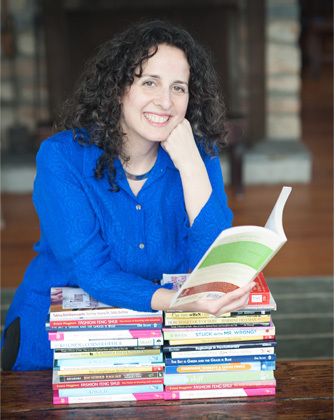
Develop your spiritual practices.
They are the greatest support for your writing and your creativity.
With them, you will write with greater ease, break through blocks more easily, and have the stamina to write consistently and from your heart.
15. Carol Tice , founder of Make a Living Writing

Dive in and be scared later.
Simply take action and don’t overthink where this might end up.
Think of something scarier than writing your piece, and it’ll be a breeze by comparison.
Instead of feeling scared to take action, think of everything you do as a writer like it’s a science experiment. “I’ll write this and send it off and see what happens, mwahaha.” Then, learn from that and do better.
16. C.S. Lakin , author and writing coach
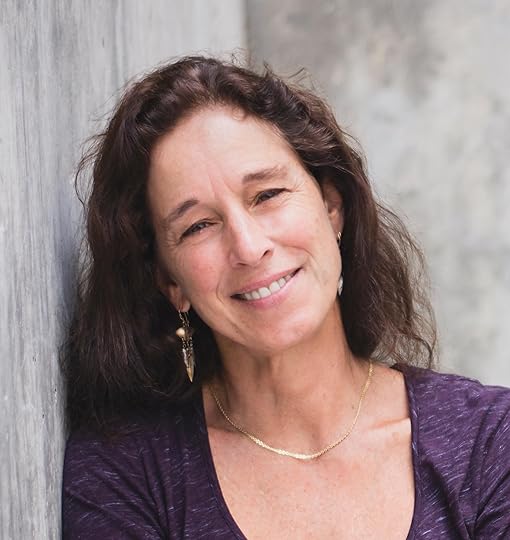
I would say to myself: “You are way too cocky.
You think you know how to write a novel because you’ve read thousands of them. You need to stop trying to publish your terrible manuscript and spend time learning the craft.
There is actually a thing called structure, and you don’t know it.
Get every good book there is on writing craft, attend workshops and retreats, and, for God’s sake, be humble! Take advice. Be teachable.”
17. Tara Lazar , children’s author
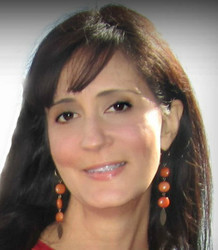
Stop being in such a rush. Slow down and work on your craft.
I wanted the agent and the deal to happen immediately. Yesterday.
Read. Write. Learn.
It will happen for you if you take the time to master your craft.
18. James Scott Bell , novelist and writing coach
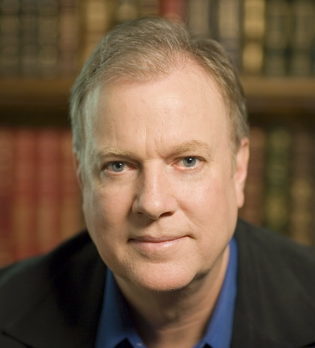
Don’t be so impatient!
It takes time to develop your craft.
You spent your 20s believing what so many told you, that you can’t learn to write. But then you tried, and you discovered you CAN learn.
Keep learning. Keep writing.
19. Debbie Ohi , children’s author

Don’t use your introversion as an excuse.
Yes, you may prefer to hide out in your creative cave, dreading learning to network and talk to people you don’t know. If you get out and starting practicing now, then your path will be that much smoother.
Start by joining the writers groups and getting to know others in the community.
It may be terrifying at first but it will get easier, and you’ll be surprised at how much fun you’ll have, the friends you’ll make.
20. Jennie Nash , founder of Author Accelerator
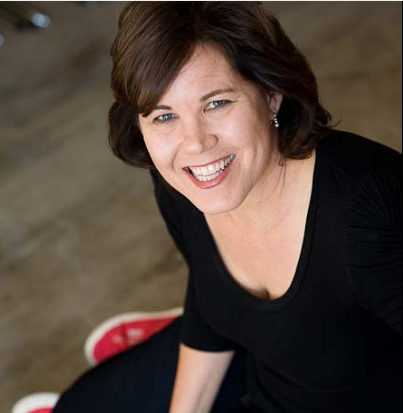
I would tell my younger self to listen to the wise elders who told me that I could make a career in the writing world.
I spent so long doubting myself, and making excuses, and waiting for someone to roll out a red carpet, and circling around the actual writing by doing jobs that were “writing adjacent.” All that delay and doubt cost me.
I recently launched a book coaching company, and we inspire writers to believe they can actually do it, and help them take the steps toward making their dreams a reality.
It feels like I’ve come full circle.
21. Chris Fabry , novelist and radio host, author of Under a Cloudless Sky

I would actually go back to my childhood and encourage myself to pay more attention to details.
Listen and observe more closely.
You think sitting at your grandmother’s kitchen table and listening to your uncles tell stories is fun.
These are seeds being sown into your soul. Soak up everything. You will use all you’re hearing, seeing, touching, tasting, and smelling.
When you’re an author you will draw from these holy moments. All great storytelling begins in childhood.
[Chris’s blog on how to make it as a writer.]
22. Les Edgerton , novelist and writing coach
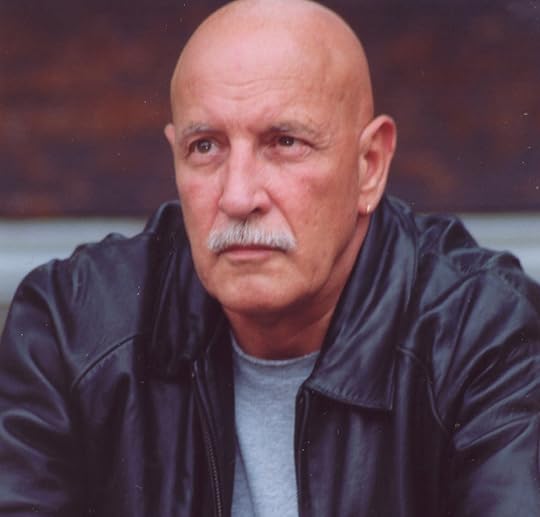
In Jim Harrison’s words:
“Read the whole of western literature for the past 400 years.
If time allows, read the whole of eastern literature for the same time period.
For, if one cannot tell what passed for good in the past, one cannot tell what passes for good now.”
23. DiAnn Mills , novelist and writing coach
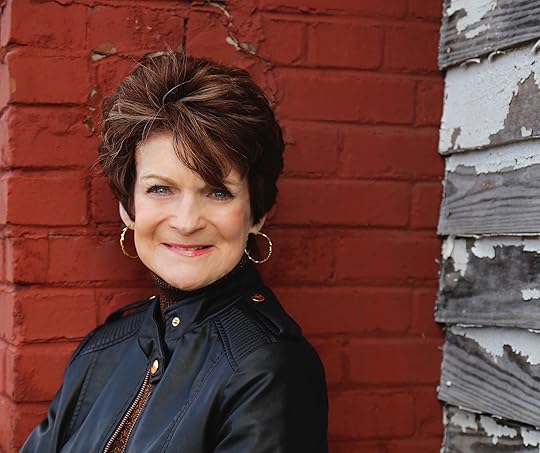
I would tell myself that my writing career isn’t about me.
True success can never be about the writer.
Fulfilling the calling is about reaching readers with an excellent story that entertains, inspires, and encourages.
Writing is about putting reader needs first, which means constantly educating myself in the craft, social media, and the publishing industry.
24. Angela Hunt , author and writing coach
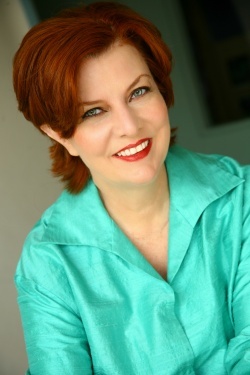
The experts don’t always know best.
You can build a readership of people who like to read in different genres.
You have to stop writing sometimes to have a life that will fuel your writing. Other avocations can scratch a different creative itch and fuel your writing as well.
Fast writing might be sloppy writing, but it ends with a result that can be cleaned up and rewritten as many times as necessary. Go at your own pace, but go!
Writing is hard.
Anyone can string words together, but imbuing those words with the power to touch a heart and change a life — that takes work, talent, and skill. And perseverance. Most of all, perseverance.
25. Steve Laube , literary agent

There is no such thing as an instant book.
A book can be published quickly, but that is the exception, not the rule.
26. Philip Yancey , author

“Do not attempt this act alone.”
Yes, writing is a solitary act, performed in isolation. But the editing process needs different sets of eyes to help clarify the writer’s vision and meaning.
The grouchiest curmudgeons make the best editors; praise feels good, but only criticism helps me improve.
27. Gloria Kempton , author and writing coach

My advice to my new writing self would be the mythologist, Joseph Campbell’s, words, Follow your bliss: “Gloria, rather than following publishing trends or dictates of the Christian publishing industry, stay close to your personal truth as it comes to you when you sit down to write. Listen, not to the many publishing ’experts’ about how to craft your message, and how to sneak that message into everything you write.
Instead, explore the questions that rise within your soul that will lead you to a more meaningful writing path, one of integrity and passion for the truth that is uniquely yours as a child of God.
When you sit down to write, assume you know nothing. Become curious. Investigate. Inquire. Your mission is not to tell readers who they are and what they should believe; your mission is to ask the important questions and give readers the opportunity to explore those for themselves.”
28. Dr. Dennis (Doc) Hensley , author, speaker, director of the professional writing emphasis, Taylor University

Develop a turtle shell hide.
Accept the editing and criticism of more seasoned writers without taking personal offense. That’s the fastest way to advance your skills.
Editors are editors because they know how to edit.
Published authors are in print because they know how to write well. If they are willing to evaluate your manuscript, heed well the points provided.
Learn to emotionally divorce yourself from the manuscript. It is being critiqued, not you.
29. Allen Arnold , author, speaker, former publisher

I would tell my younger self that no great art was ever created without great heart.
In the creative process, the heart of the storyteller takes priority over everything else including formulas, word count, social media, and productivity.
So, first live well; then write well.
Allow God to awaken your own hearts before you ask your art to stir the hearts of others. That will infuse your stories with an eternal spark that transcends you and transforms others.
30. Saundra Dalton-Smith , author, speaker, physician

Focus on establishing a relationship with potential readers before you consider writing a book.
Blog, share on YouTube, participate in social media, or even have an email newsletter list.
Start building your tribe years before writing the first book proposal.
Your unique story will draw your tribe to you. The more your readers feel they are part of your story the more likely they are to share with others.
31. Becca Puglisi , author of The Emotion Thesaurus

Don’t be afraid to say Yes.
The journey to becoming a writer can be daunting. There’s so much to do and learn, and it’s easy to look at other opportunities as distractions, particularly if you’re not totally comfortable doing them. Step out of your comfort zone and stretch yourself.
New challenges will grow you as a author and take you farther than you imagined possible. Saying Yes might be the first step in mastering a difficult area of the craft, expanding your writing options, meeting other authors who will be integral to your growth, becoming an international speaker, or selling way more books than you ever thought possible.
So when an opportunity presents itself that might seem scary or even impossible, don’t dismiss it outright. Instead, consider what it might offer. Will it teach you a worthwhile skill, give you a chance to try something new, or require you to do something that makes you nervous? If so, it might be a good idea after all.
32. William Noble , author and writing coach, attorney

Don’t assume you must follow a predetermined writer’s path, that you will be a novelist or a poet or a playwright or a journalist, and you will concentrate on this form of writing only.
Try all forms of writing, don’t pre-type yourself, produce fiction, creative nonfiction, poetry, playscripts, essays, profiles, humor, memoir, and biography.
Eventually, the shape of your talent will emerge from how you have tested yourself.
33. Steven James , author and speaker
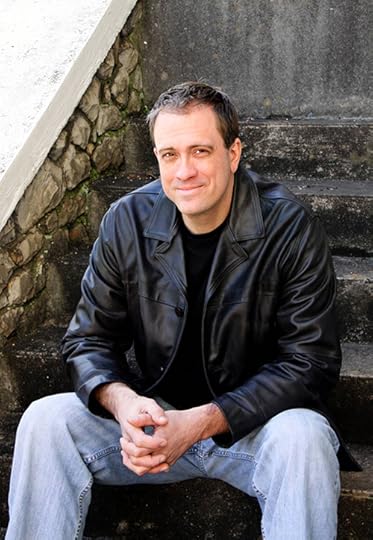
I would confirm to my younger self that story always trumps structure.
Numerous books tell how to plot and structure a story; however, these can end up derailing the story.
It’s tempting to utilize them instead of following the organic process of story shaping, but it’s vital that you let the story inform the direction of your writing. Fear will always drive you back to an outline.
Part of the artistic process is learning to channel that fear into creativity and not confine yourself because of it.
34. Michele Cushatt , author, speaker, emcee

Write for the love of writing itself, not what writing might afford you.
The writers who endure are those who can’t not write, the ones for whom contracts and publication are secondary rewards.
Rather than aiming at recognition, they chase understanding. They lean into the struggle, learn to marvel at the untangling of complexities and the transcendence of unforgettable stories.
Writing holds the power to transform you and the way you see the world in a way few other human experiences can. This is the real reward, the one that lasts long after the lights go out.
35. Marion Roach Smith , memoir writing coach
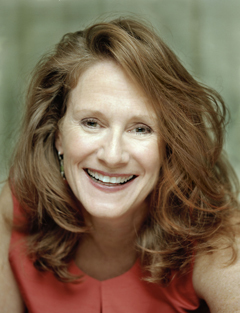
“Discipline.”
The clear, hard, cold fact is that without discipline all the inspiration and rituals, lucky pencils, good views out the window, and all those other things you think you have to have before you write, won’t bring you anything of value. They simply will not sustain you the way discipline will.
I’d tell myself that with humor and grace, however, and not a bit sternly.
No young writer should be spoken to with the least amount of stern admonition, but rather with enormous encouragement and support.
36. Patricia Raybon , author, writer, teacher

Write daily. But not just for productivity. Write to discover yourself, getting reintroduced to the human being you’re blessed to be — that person indwelled with something of value to offer the world.
Don’t publish daily. Rather, publish regularly — fine-tuning what you want to say to the world and how to say it.
Bluster, brawling and bravado? No. Kindness, motivation and encouragement. Yes.
Even as I write this reflection for author friend Jerry Jenkins, I’m reminded why daily writing matters. It’s a bonus tool — helping unearth your brand, purpose, message, values, and audience. Therefore, write. In journals. In letters. On the grocery list taped to your refrigerator. Write something down. Today. You’ll grow as a writer. Even better? You’ll grow as a person. Your readers and your career will thank you.
37. Brandilyn Collins , novelist and writing teacher

Brandilyn, you’re embarking on a very difficult journey.
You’ll have some highs and lots of lows. The writing business/industry will be all over the map, and no matter what you sell, you’re likely to always want more.
Remember — this is not about you. Your writing for the Christian market — writing novels that portray God’s grace and power — is for Him.
God will do with these books as He chooses. God will use the words you write to change people’s lives for eternity. And that’s something no price tag could ever cover.
Follow His will for your writing. Continue to work hard on your craft. Work hard on marketing. Give God your best. Then leave the results to Him.
38. Julie Duffy , founder of Story a Day

Don’t wait to write until you’re older/wiser/invited to the party.
Don’t wait until you have something “important” to say. You are living now, and you’ll never be able to recapture the feeling of being 15, 22, 36…not really. The things that matter to you now, won’t matter in the same way when you’re older, and the things that matter to you when you’re older won’t necessarily be more important. You might know more, but that won’t make you more interesting or important. Write now.
Don’t wait, because when you do have something important to say, you won’t want your writing to be rusty. Your writing will change and evolve, and when you get stuck you will seek out the mentors and teachers you need to move you to the next stage.
Don’t wait, because the best ideas come when you’re writing. You will never, never run out of ideas, as long as you keep writing.
Don’t wait for anyone to tell you to write. Whether or not anyone ever pays you to write, or asks you to contribute, or gives you permission to sneak off and steal an hour or two to tell stories on paper, writing is a part of you. You are more fully yourself when you accept and embrace that. You’re easier to live with when you’re writing, so claim the time you need, and don’t wait. Make it a priority to do the writing, rather than to worry about whether you’ll ever make a career of it. Don’t put the cart before the horse, my girl!
Oh, and you’re going to love this thing called the Internet.
39. Randy Alcorn , inspirational author
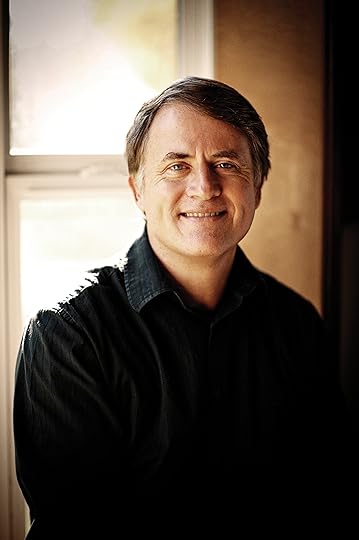
Write only those books you are absolutely convinced God wants you to. Not just books that are good ideas, but ideas that you’re personally passionate about and fit your heart, convictions, wiring, and style, not someone else’s.
It’s great to listen to publishers and others, hear their ideas, and modify yours as long as you can retain a sense of ownership so it really remains your book. Never write a book you can’t pour yourself into 100%. Even 90% isn’t enough, because when you hit the rough spots, your heart needs to be totally in it.
40. Jessica Strawser , author and editor-at-large, Writer’s Digest

Having since learned the power of tapping into networks of fellow writers — through genre-based organizations, conferences, Facebook groups, in-person groups, any way you can — my advice would be to find and grow your tribe as early and as well as you’re able.
Their support will buoy you at every stage, and through giving as good as you get, you’ll stay connected to the joy of the craft even when you’re feeling the heat beyond the page.
41. Jerry Jenkins , novelist and biographer, owner, Jerry Jenkins Writers Guild

Before submitting anything, be sure you’re happy with every word.
Become an aggressive, even ferocious self-editor.
Click here for my guide on this subject. And here for information on my Writers Guild.
In the comments below, tell me which writing tip stood out most to you and why.
Related Posts:
How to Write a Book: Everything You Need to Know in 20 Steps
How to Overcome Writer’s Block Once and For All: My Surprising Solution
How to Create an Author Website in the Next Hour…And Why You Need To
The post Writing Tips 41 Experts Wish They’d Known as Beginners appeared first on Jerry Jenkins | Proven Writing Tips.
December 28, 2017
Editors’ Wish List When Working with Nonfiction Writers
What follows is common sense, but you’d be surprised at how many novice writers skip too many of the suggestions on this list. You can get a leg up on the competition by following these to a T. And if you’re primarily a fiction writer, you’ll find much of this advice applies to short stories too. – Jerry J.
Guest blog by Karla Dial and Diane McDougall
1. When pitching for the first time, study the publication to make sure your idea fits their mission.
2. Find and follow their writers’ guidelines (most will be online).
3. If your pitch is not accepted, thank the editor for considering it.
Be known as someone enjoyable to work with.
4. If your pitch is accepted, make sure you’re clear on the deadline and word count.
Be prepared for rewriting requests.
5. Study the publication again to see how stories are formatted.
Do they all have titles?
Decks and/or bylines?
Do they break up the copy with subheads?
Do they include footnotes or taglines for the author at the end?
Whatever you see, DO THAT. The easier you make an editor’s job, the more likely he or she will keep hiring you.
6. Remember, if you submit your piece after close of business on the day of the deadline, you’ve missed the deadline.
If you think you’ll need more time, let the editor know as early in the process as possible. Nobody wants to scramble to fill a hole at the last minute.
7. If an editor sends back edited copy for more information or revisions, work with the edited copy, not your original file.
Don’t make the editor do the same work twice.
8. Don’t be a diva.
Learn to graciously defend your work, but also know when to let things go.
There’s room for discussion, but in the end, the editor is on your side, while also being responsible for preserving missional integrity as well as the publication’s standards.
Compiled by Karla Dial, editor of Citizen magazine, with input from Diane McDougall, editorial director for Journey Group. Adapted with permission from EPA Liaison, Winter 2017-2018.
In the Comments, tell what you learned or were reminded of from this list.
Related Posts:
How to Overcome Writer’s Block Once and For All: My Surprising Solution
How to Write a Book: Everything You Need to Know in 20 Steps
How to Write a Short Story That Captivates Your Reader
The post Editors’ Wish List When Working with Nonfiction Writers appeared first on Jerry Jenkins | Proven Writing Tips.
December 5, 2017
Personalizing Your Character’s Emotional Wound
Guest blog by: Becca Puglisi
Emotional wounds are tricky to write about.
Abuse, betrayal, victimization, and the death of a loved one may exist in our characters’ pasts and so must be explored.
But these are also real life events that cause damage to real people.
So as I talk today about personalizing wounds for our characters, please know that I’m aware of the pain they cause in our world, and I applaud the courageous individuals who fight to come to grips with them every day.
Why Wounding Events Matter in Fiction
Wounding events greatly affect a character’s development, so they’re important to identify.
These painful experiences are deeply impactful, giving birth to life-altering fears, new habits and behaviors, even flaws meant to protect her from facing that pain again.
Wounding events are aptly named because they change who the character is; until they’re faced and addressed, she will never be whole.
But pinpointing what that event might be for a character is just the first step.
Traumas affect people differently; something that would destroy one character may have no lasting impact on another.
The wounding experience should be one that stops the protagonist in her tracks, making it impossible for her to achieve that story goal that will result in personal fulfillment.
However, you can maximize the impact of a traumatic event on a character by making it more personal.
You can accomplish this by knowing the following factors that can impact a wound and incorporating them into your story:
Personality
Some people are simply better equipped to deal with difficulty than others. An anxious or embittered person may find it harder to deal with a traumatic event than someone with an optimistic outlook or an adaptable nature.
So build the necessary traits into her personality before tragedy strikes.
Support
A strong support system is hugely helpful in facilitating healing for a victim. Loyal loved ones, a steady faith, or a supportive community can make it easier for someone to spring back, whereas a victim suffering alone may have a harder time.
Physical Proximity
The closer the danger, the more traumatic it can be.
A violent bank robbery may impact the employees, the customers, a security guard, etc. But the teller with the gun stuck in her face may take longer to recover than anyone else.
Emotional Proximity
It’s harrowing to be conned by a stranger, but someone you know causes even more damage, breeding self-doubt and making it difficult to trust others in the future.
Responsibility
It’s commonplace to replay a horrific event, picking it apart to figure out how it could have been avoided. This often results in the victim blaming herself, even when she was in no way at fault.
So if you need to intensify an already difficult circumstance, add an element of self-blame.
Justice
Seeing the perpetrator pay for what he’s done often provides closure that can set the victim on the path to healing.
On the other hand, knowing the criminal is still out there and free to strike again can cause a wound to fester.
Compounding Events
A trauma is horrible enough, but it often sets other events in motion that the wounded character is ill equipped to deal with.
Someone who has lost a child may also face divorce, be unjustly blamed, or lose a job due to depression.
Compounding events are the equivalent of someone kicking the victim when she’s down.
Just as you can use these factors to make a rough circumstance more difficult for your protagonist, you can also tweak them to soften their impact on other characters.
So as you dig into the backstory to unearth your characters’ pain, consider how deeply you want them affected.
Despite having experienced wounding events of our own, applying them to our characters can be daunting.
I’ll be lurking around the comments section to answer any questions.
Thank you, Jerry, for hosting me today!

Becca Puglisi is an international speaker, writing coach, and bestselling author of The Emotion Thesaurus and its sequels, including the latest member of the family: The Emotional Wound Thesaurus. Her books are available in five languages, are sourced by US universities, and are used by novelists, screenwriters, editors, and psychologists around the world. She is passionate about learning and sharing her knowledge with others through her Writers Helping Writers blog and via One Stop For Writers—a powerhouse online library created to help writers elevate their storytelling. You can find Becca online at both of these spots, as well as on Facebook and Twitter.
Related Posts:
The Ultimate Guide to Character Development: 10 Steps to Creating Memorable Heroes
How to Write a Book: Everything You Need to Know in 20 Steps
249 Powerful Verbs That’ll Instantly Supercharge Your Writing
The post Personalizing Your Character’s Emotional Wound appeared first on Jerry Jenkins | Proven Writing Tips.
November 14, 2017
A Writer’s Guide to Point of View
Budding writers often ask me:
“How do I master Point of View?”
The inability to grasp this concept is the most common problem I see in aspiring novelists.
Veteran editor Dave Lambert says, “No decision you make will impact the shape and texture of your story more than your choice of Point of View.”
So let’s straighten it out, shall we?
After you read this post, you’ll know the crucial POV rules and techniques professional writers use (and publishers look for)—and how to apply them to your story.
What is Point of View?
Things to understand about Point of View before we break it down:
1. Point of View is really two things:
A. The Voice with which you tell your story.
Not to be confused with the tone or sound of your writing (think of that Voice as your writing attitude), this is your choice to tell it in First Person (I), Second Person (you), or Third Person (he, she, or it).
B. Your Perspective Character.
Basically, that answers “Whose story is this?”
2. The cardinal rule of Point of View:
Limit yourself to one Perspective Character per scene, preferably per chapter, ideally per book.
That means no switching POV characters within the same scene, let alone within the same paragraph or sentence.
(Yes, that’s a common amateur mistake, and it results in head-hopping—a giant Point of View no-no I cover in more detail below.)
Point of View is worth stressing over, it’s that important.
Even pros have to remind themselves to avoid sliding into an Omniscient viewpoint.
I avoid that by imagining my Point of View or Perspective Character as my camera—I’m limited to writing only what my character “camera” sees, hears, and knows.
In essence, I’m limited to his or her perspective.
Breaking Down the Point of View Voices

While POV is limited to one perspective character at a time, each of the three primary voices may be written in the present or past tense.
First Person Point of View
In this POV, the perspective character tells the story.
First Person is the second most common voice in fiction, but I recommend it for many beginning novelists, because it forces you to limit your viewpoint to one Perspective Character—which you should do with all POVs except Omniscient.
My first 13 novels (The Margo Mysteries) were written in first-person past tense.
First Person Examples
The most common use of first-person is past tense.
Herman Melville’s Moby-Dick begins in present tense but immediately switches to past:
Call me Ishmael. Some years ago, never mind how long precisely, having little or no money in my purse and nothing particular to interest me on shore, I thought I would sail about a little and see the watery part of the world.
While I recommend first-person, I think you’d find present tense awkward and difficult to sustain.
On the other hand, The Hunger Games by Suzanne Collins is rendered that way and has become one of the most successful novel series ever.
If you have colossal writing talent and an idea as cosmic as hers, feel free to ignore my counsel and go for it.
November 2, 2017
How to Write Dialogue That Captivates Your Reader
If the dialogue you write bores you, it’ll put your reader to sleep.
And unfortunately, your first reader will be an agent or an editor. You can’t slip anything boring past them.
Your job is to make every word count. That’s the way to keep your reader riveted until the final page—no small task.
Making every word count is how to write compelling dialogue.
Readers love dialogue because:
It breaks up intimidating blocks of narrative summary.
It differentiates (through dialect and word choice) and reveals characters.
Done well, it can move the story without author intrusion.
But, as you have likely discovered, writing great dialogue is hard. If yours is bloated or obvious or telling or is in any other way uninteresting, readers won’t stay with you long.
So how about we leave them no choice?
6 Tips to Writing Effective Dialogue
1. Cut to the Bone
Unless you need to reveal a character as a brainiac or a blowhard pretending to be one, omit needless words.
Obviously, you wouldn’t render a conversation the way a court transcript includes repetition and even um, ah, uh, etc.
But even beyond that, see how much you can chop without losing the point.
Like this:
“What do you want to do this Sunday? I thought wW e could go to the amusement park.”
“I was thinking about renting a rowboat,” Vladimir said. on one of the lakes .”
“Oh, Vladimir, that sounds wonderful! I’ve never gone rowing before.”
That doesn’t mean all your dialogue has to be short and choppy—just that you’ll cut the dead wood to keep to the point.
You’ll be surprised by how much power it adds to your prose.
2. Reveal Backstory

Layering in backstory through dialogue is another way to keep your reader turning pages.
Hinting at some incident for the first time is an automatic setup that demands a payoff.
Example:
As they headed toward the house, Janet whispered, “Can we not have a repeat of Cincinnati?”
Jeanie shot her a double take. “Believe me, I don’t want that any more than you do.”
“Good,” Janet said. “I mean—”
“Can we not talk about it, please?”
What normal reader wouldn’t assume they will talk about it at some point and stay with the story until they do?
As the story progresses, you can reveal more and more about your protagonist’s past and have your story come full circle.
This accomplishes two things: it offers a setup that should intrigue the reader, and it helps you avoid flashbacks.
3. Reveal Character
Your reader learns a lot about your characters through dialogue.
You don’t have to TELL us they’re sarcastic, witty, narcissistic, kind, or anything else.
You can SHOW us by how they interact and by what they say.
4. Be Subtle
Dialogue can accomplish a number of tasks.
Here are three:
1. Subtext—where people say other than what they mean.
This can be fun.
Example:
My friend Dr. Dennis E. Hensley sold a short story to a general-market magazine years ago about a girl named Cindy who falls in love with the slightly older boy next door, who sees her as just a little sister type.
When they get to high school, Tommy is the big man on campus, captain of the football team, dating the head cheerleader, and pretty much ignoring Cindy. She’s just his younger neighbor and friend.
Tommy leaves for college and word soon gets back to Cindy during her senior year of high school that he and his girlfriend have broken up.
So when he comes home after his freshman year of college and is changing a tire on his car, Cindy just happens to walk outside. She strikes up a conversation with Tommy, and he looks up, stunned. Who is this beauty…little Cindy from next door?
She says, “Making a change, are you?”
Tommy looks at the tire and back at her and says, “Yeah, I actually I am making a change.”
Cindy says, “Well, I’ve heard that rotating can be a good thing.”
And he says, “Yeah, I’ve heard that too.”
That’s subtext. They’re not saying what they really mean. They’re not really talking about changing the tire, are they?
2. Sidestepping—when a character responds to a question without answering it.
Instead, what the character says is so profound and unexpected that it offers a whole new understanding of what’s going on.
Example:
In the movie Patch Adams, the late Robin Williams played a brilliant young doctor who believes the Old Testament adage that “laughter is the best medicine.”
He goes into the children’s cancer ward of a hospital wearing an inflated surgical glove on his head, making him look like a rooster. He wears bedpans for shoes and stomps about, flapping his arms and squawking.
The children find it hilarious, but hospital directors consider it undignified and demand he stop.
Patch Adams is trying to make one girl in particular—a hospital volunteer—laugh. But while everyone else thinks he’s funny, she never cracks a smile.
Finally, Patch leaves the hospital to open a clinic in the country. Imagine his surprise when that humorless young lady appears to help him set up.
At one point, she goes outside to rest, so Patch follows and sits opposite her. He says, “I’ve got to ask. Everybody thinks I’m hysterical, but you. I’ve tried everything. What is it with you? Why don’t you ever think anything I say is funny?”
After several seconds of silence, she says, “Men have liked me all my life…all my life…” And we realize by the way she says it, she was abused as a child.
Suddenly, we understand what this girl is all about. She doesn’t trust men, and she doesn’t laugh, because life isn’t funny.
The way she responded did not answer his question. Her problem had nothing to do with him or his humor.
Finally, Patch realizes that some things aren’t funny.
Some things you just don’t make fun of. Sometimes, you need to quit cracking jokes and just listen.
It’s a great turnaround in the story. And an example of sidestep dialogue.
3. Silence
The old truism that silence can be golden rings true for our last technique.
Many, including Abraham Lincoln, have been credited with the line: “Better to remain silent and be thought a fool than to speak and remove all doubt.”
One of the toughest things to learn as a writer is to avoid filling silent gaps.
Just like we shouldn’t tell what’s not happening in a story, neither do we need to write that someone didn’t respond or didn’t answer.
If you don’t say they did, the reader will know they didn’t.
Example:
“Well John,” Linda said, “what do you have to say for yourself?”
John set his jaw and stared out the window.
“I’m waiting,” she said.
He lit a cigarette.
Linda shook her head. “I swear, John, honestly.”
Now, too many writers feel the need to write here, “But he refused to say anything,” or “But he never responded.”
Don’t! We know, we get it—and it’s loud, effective, silent dialogue.
The reader knows because John is saying nothing, and yet saying everything. Silence is golden.
5. Read Your Dialogue Out Loud

One way to be certain your dialogue flows is to read it aloud or even act it out.
Doc Hensley uses this method, and when his children were little, they found it amusing.
They would invite friends over, stand outside his closed door, and listen as he acted out his scenes.
He’d say, “I know you stole the loot!” And then he’d jump into a chair and respond, “I didn’t do it! I’m innocent!”
His kids’ friends would say, “Who’s your dad arguing with?” And his daughter would say, “It’s just him.”
Anything that doesn’t sound right won’t read right either, so rewrite it until it does.
6. Create a “Make My Day” Moment
Certain iconic lines of dialogue have become as legendary as the films and books they originate from:
“Frankly my dear…”
“There’s no place like home.”
“We’re not in Kansas anymore.”
“To my big brother George, the richest man in town.”
“What we have here is failure to communicate.”
“Go ahead, make my day.”
“May the force be with you.”
“Houston, we have a problem.”
“Run, Forrest, run!”
“You had me at hello.”
Most writers — even bestselling novelists — never create such an unforgettable line of dialogue. But striving to create one is a worthy effort.
Ironically, it should fit so seamlessly it doesn’t draw attention to itself until fans begin quoting it.
How to Use Dialogue Tags to Identify Speakers
Dialogue attribution tags—he said, she said, etc.—indicate who is speaking.
Resist the urge to get creative here. Said is almost always your best choice.
Teachers who urge you to find alternatives are usually unpublished and believe agents and editors will be impressed.
Trust me, they won’t be.
Avoid mannerisms of attribution. People say things. They don’t wheeze, gasp, sigh, laugh, grunt or snort them.
They might do any of those things while saying them, which might be worth mentioning, but the emphasis should be on what is said, and readers just need to know who is saying it.
Keep it simple. All those other descriptors turn the spotlight on an intrusive writer.
Sometimes people whisper or shout or mumble, but let their choice of words indicate they’re grumbling, etc.
If it’s important that they sigh or laugh, separate that action from the dialogue.
Jim sighed. “I can’t take this anymore.”
Not: Jim sighed, “I can’t take this anymore.”
Though you read them in school readers and classic fiction, attribution tags such as use of reply, retort, exclaim, and declare have become clichéd and archaic.
You’ll still see them occasionally, but I suggest not using them.
Often no attribution is needed.
Use dialogue tags only when the reader wouldn’t otherwise know who’s speaking.
I once wrote an entire novel, The Last Operative, without attributing a single line of dialogue. Not a said, an asked, anything.
I made clear through action who was speaking, and not one reader, even my editor, noticed.
A common error is characters addressing each other by name too often.
Real people rarely do this, and it often seems planted only to avoid a dialogue tag. Fictional dialogue should sound real.
Don’t start your dialogue attribution tag with said. Rather, end with said.
…said Joe or …said Mary, reads like a children’s book. Substitute he and she for the names and that will make it obvious.
…said he or said she just doesn’t sound right.
Use said after the name for the best sound. …Joe said or …Mary said.
Resist the urge to explain, and give the reader credit.
The amateur writer often writes something like this:
“I’m beat,” exclaimed John tiredly.
Besides telling and not showing — violating a cardinal rule of writing — it uses the archaic exclaimed for said, misplaces that before the name rather than after, and adds the redundant tiredly.
The pro would write:
John dropped onto the couch. “I’m beat.”
That shows rather than tells, and because John’s action has been described, we don’t need an attribution tag to know he’s speaking.
How to Punctuate Dialogue
Few things expose a beginner like incorrect punctuation, especially in dialogue.
Agents and editors justifiably wonder if you read dialogue, let alone whether you can write it, if you write something like: “I don’t know.” she said. Or, “What do you think?” He said.
To avoid common mistakes:
Start a new paragraph for each speaker
When one character’s dialogue extends to more than one paragraph, start each subsequent paragraph with a double quotation mark, and place your closing double quotation mark only at the end of the final paragraph.
Place punctuation inside the quotation marks, the dialogue tag outside: “John was just here asking about you,” Jim said.
The attribution tag goes after the first clause of a compound sentence: “Not tonight,” he said, “not in this weather.”
When dialogue ends with a question or exclamation mark, the dialogue tag following the quotation marks should be lowercase: “I’m glad you’re here!” she said.
Action before dialogue takes a separate sentence: Anna shook her head. “I can’t believe she’s gone!”
Quoting within a quote requires single quotation marks: “Lucy, Mom specifically said, ‘Do not cut your bangs,’ and you did it anyway!”
When action or attribution interrupts dialogue, use lowercase as dialogue resumes: “That,” she said, “hurt bad.”
Dialogue Examples
If you’re old enough to remember the original Twilight Zone (hosted by Rod Serling) or Dragnet (starring and narrated by Jack Webb), you know how dialogue set the tone for their shows.
Serling was sometimes whimsical, sometimes mysterious, but always provocative. “Consider one middle-aged adult, lost in space and time…”
Jack Webb, as L.A. police detective Sergeant Joe Friday, was always deadly serious and monotone. “Just the facts, ma’am.”
Contrast those with the dialogue between Tom and his Aunt Polly in Tom Sawyer.
If you’re anything like me, you were laughing from page 1.
“There! I mighta thought of that closet. What you been doing in there?”
“Nothing.”
“Nothing! Look at your hands. And look at your mouth. What IS that truck?”
“I don’t know, aunt.”
“Well, I know. It’s jam—that’s what it is. Forty times I’ve said if you didn’t let that jam alone I’d skin you. Hand me that switch.”
The switch hovered in the air—the peril was desperate—
“My! Look behind you, aunt!”
The old lady whirled round and snatched her skirts out of danger. The lad fled on the instant, scrambled up the highboard fence, and disappeared over it.
Great dialogue can set the tone for your entire story and also differentiate characters, as we discussed earlier.
Doc Hensley likes to cite how in Huckleberry Finn Mark Twain delineates between Huck the Southern white boy and Jim the runaway slave by just hinting at their respective accents.
Twain doesn’t use tags to tell who’s speaking, yet the reader never confuses the two.
Huck says, “Jim, did y’all ever see a king?”
Y’all is the only word in that sentence that implies a Southern accent, but it’s enough.
Jim says, “I sho enough did.”
Huck says, “You liar, Jim. You never seen no king.”
Jim says, “I seen foh kings in a deck of cards.”
Huck’s bad grammar and Jim’s sho and foh are the only hints of their dialects.
Contrived phonetic spelling would slow the reading, but look what Twain accomplished with simple choices.
The Cardinal Sin of Dialogue
The last thing you want is to produce on-the-nose dialogue.
Apply to your own work those principles and the tools I’ve outlined here, and I believe you’ll immediately see a huge difference. So will your reader.
In the Comments, ask me any questions regarding how to write dialogue.
Related Posts:
How to Write a Book: Everything You Need to Know in 20 Steps
How to Write a Short Story That Captivates Your Reader
How to Write a Memoir: A 3-Step Guide
The post How to Write Dialogue That Captivates Your Reader appeared first on Jerry Jenkins | Proven Writing Tips.
October 31, 2017
How to Overcome Writer’s Block Once and for All: My Surprising Solution
You well know the frustration.
It comes time to write, and you can’t produce a single word.
Maybe you’ve tried for weeks, months, or even years. But still nothing comes.
You’re suffering the dreaded Writer’s Block while your writing dream, your story, and the message you long to share with the world all collect dust in the attic of your mind.
If you don’t find a cure soon, you’re going to give up—and your story will never reach the masses like you hoped.
Good news! I’ve discovered how to crush Writer’s Block once and for all, and my more than 190 books, 21 of which have been New York Times bestsellers, prove it.
You don’t have to quit, and if you already have, you can change your mind and get back to writing.
So what’s my secret?
I treat Writer’s Block as the myth it is.
“Wait!” you’re saying. “Foul! If it’s a myth why am I suffering from it right now?”
Believe me, I know what you’re going through. I’m not saying I don’t have those days when I roll out of bed feeling I’d rather do anything but put words on the page.
But I know how to get unstuck.
During my career I’ve learned to turn on a faucet of creativity—even when, in fact especially when, I find myself staring at a blank page.
My approach stops Writer’s Block in its tracks, and it can do the same for you.
How can I call Writer’s Block a myth when you and countless others seem plagued by it?
Let’s think this through.
If Writer’s Block were real, why would it affect only writers? Imagine calling your boss and saying, “I can’t come in today. I have worker’s block.”
You’d be laughed off the phone! And you’d likely be told never to come in again.
No other profession accommodates block as an excuse to quit working, so we writers shouldn’t either.
If writing is just a hobby to you, a diversion, something you can take or leave, it shouldn’t surprise you that you find ways to avoid it when it’s hard.
What Is Writer’s Block? Something All Writers Need to Know…
What we call Writer’s Block is really a cover for something much deeper.
Identify that deeper issue and you can overcome Writer’s Block and finally start writing.
Overcoming Writer’s Block: Confronting the 4 Real Causes
Cause #1: Fear
Do you fear you’re not good enough?
That you don’t know enough?
Do you fear the competition? Editors? Writing itself?
You have big dreams and good intentions, but you can’t get past your fear?
Would you believe all of the above describes me too? Yes, even now, every time I begin a new book.
Let’s be honest: Writing a book is hard. The competition is vast and the odds are long.
That kind of fear can paralyze. Maybe it’s what has you stuck.
Solution
So how can I suffer from that same fear and yet publish all those titles?
Because I discovered something revolutionary: After failing so many times to overcome fear, it finally dawned on me—my fear is legitimate.
It’s justified. I ought to be afraid.
So now I embrace that fear! Rather than let it overwhelm and keep me from writing, I acknowledge the truth of what I’m afraid of and let that humble me.
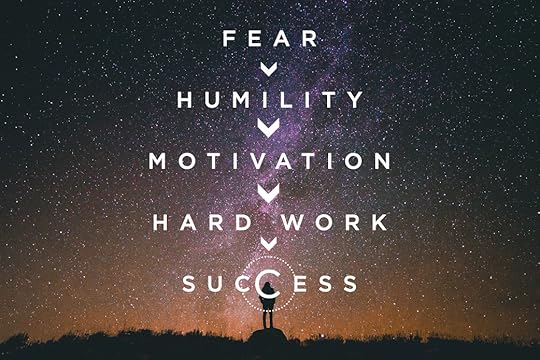
Legitimate fear humbles me. That humility motivates me to work hard. And hard work leads to success.
That’s why fear doesn’t have to be a bad thing.
Better to fear you’re not good enough than to believe you’re great.
Dean Koontz, who has sold more than 450 million books, says:
“The best writing is borne of humility. The great stuff comes to life in those agonizing and exhilarating moments when writers become acutely aware of the limitations of their skills, for it is then that they strain the hardest to make use of the imperfect tools with which they must work.”
I’ve never been motivated by great amounts of money (not that I have anything against it!), but that quote comes from a man worth $145 million, earned solely from his writing.
How humble would you be if writing had netted you $145 million? Yet, humility is the attitude Dean Koontz takes to the keyboard every day.
If you’re afraid, fear the “limitations of your skills.” Then, “strain the hardest to make use of those imperfect tools with which you must work.”
That’s how to turn fear into humility, humility into motivation, motivation into hard work, and hard work into success.
Fear can be a great motivator.
Cause #2: Procrastination
Everywhere I teach, budding writers admit Procrastination is killing their dream.
When I tell them they’re talking to the king of procrastinators, their looks alone call me a liar.
But it’s true.
Most writers are masters at finding ways to put off writing. I could regale you for half a day with the ridiculous rituals I perform before I can start writing.
But my track record says I must have overcome Procrastination the way I have overcome Writer’s Block, right?
In a way, yes. But I haven’t defeated Procrastination by eliminating it. Rather, I have embraced it, accommodated it.
After years of stressing over Procrastination and even losing sleep over it, I finally concluded it was inevitable.
Regardless my resolve and constant turning over new leaves, it plagued me.
Solution
I came to see Procrastination as an asset.
I find that when I do get back to my keyboard after procrastinating, my subconscious has been working on my project. I’m often surprised at what I’m then able to produce.
So if Procrastination is both inevitable and an asset, I must accept it and even schedule it.
That’s right. When I’m scoping out my writing calendar for a new book, I decide on the number of pages I must finish each writing day to make my deadline. Then I actually schedule Procrastination days.
By accommodating Procrastination, I can both indulge in it and make my deadlines.
How?
By managing the number of pages I must finish per day.
If Procrastination steals one of my writing days, I have to adjust the number of pages for each day remaining.
So here’s the key: I never let my pages-per-day figure get out of hand.
It’s one thing to go from 5 or 6 pages a day to 7 or 8. But if I procrastinate to where now I have to finish 20 pages per day to make my deadline, that’s beyond my capacity.
Keep your deadline sacred and your number of pages per day workable, and you can manage Procrastination.
Cause #3: Perfectionism
Many writers struggle with Perfectionism, and while it can be a crippling time thief, it’s also a good trait during certain stages of the writing process.
Not wrestled into its proper place, however, Perfectionism can prove frustrating enough to make us want to quit altogether.
Yes, I’m a perfectionist too. I’m constantly tempted to revise my work until I’m happy with every word.
Solution
Separate your writing from your editing.

As I said, Perfectionism can be a good thing—at the right time.
While writing your first draft, take off your Perfectionist cap and turn off your internal editor.
Tell yourself you can return to that mode to your heart’s content while revising, but for now, just get your story or your thoughts down.
I know this is counterintuitive. When you spot an error, you want to fix it. Most of us do.
But start revising while writing and your production slows to a crawl.
You’ll find yourself retooling, editing, and rearranging the same phrases and passages until you’ve lost the momentum you need to get your ideas down.
Force yourself to keep these tasks separate and watch your daily production soar.
Cause #4: Distractions
It’s like clockwork.
Every time you sit down to write, something intrudes on your concentration.
Whether it’s a person, social media, or even a game on your phone, distractions lure you from writing.
Solution
How serious is your writing dream? If it remains your priority, It’s time to take a stand.
Establish these two ground rules to safeguard your work time:
Set a strict writing schedule.
Tell anyone who needs to know that aside from an emergency, you’re not available. That should eliminate friends and loved ones assuming “you’re not doing anything right now, so…”
It’s crucial you learn to say No. During your writing hours, you’re working.
Turn off all other media.
That means radio, TV, email, or social media.
When we feel stuck, our inclination is to break from the work and find something fun to occupy our minds.
That’s why Facebook, online shopping, and clickbait stories and pictures can keep us from writing.
When we should be bearing down and concentrating on solutions, we’re following links from the “10 Ugliest Actors of All Time” to “15 Sea Creatures So Ugly You Won’t Believe They Exist.”
Before you know it, your time has evaporated and you’ve accomplished nothing.
A Writer’s Block App I Recommend
To stay focused on writing, use a distraction-blocking app called Freedom. (This is an affiliate link, so I earn a small commission at no cost to you.)
Freedom allows you to schedule your writing time and blocks social media, browsing, and notifications on your devices till you’re done.
You set the parameters and can override it for emergencies, but it’s a powerful tool.
Writer’s Block Quotes from Bestselling Authors
“Amateurs sit and wait for inspiration; the rest of us get up and go to work.” — Stephen King
“My cure for writer’s block? The necessity of earning a living.” — James Ellroy
“Writer’s block is just another name for fear.” — Jacob Nordby
“I don’t believe in writer’s block. Just pick up a pen and physically write.” — Natalie Goldberg
“If I waited till I felt like writing, I’d never write at all.” — Anne Tyler
“If you tell yourself you are going to be at your desk tomorrow, you are by that declaration asking your unconscious to prepare the material. ‘Count on me,’ you are saying: ‘I will be there to write.’” — Norman Mailer in The Spooky Art: Some Thoughts on Writing
“The secret to getting started is breaking your complex overwhelming tasks into small manageable tasks, and then starting on the first one.” — Mark Twain
You Can Defeat Writer’s Block
Stand up to it the way you would a bully
See it for the myth it is
Turn your fear into humility and humility into hard work
That’s how to defeat Writer’s Block once and for all.
Have other questions about Writer’s Block? Ask me in the Comments.
Related Posts:
How to Write a Book: Everything You Need to Know in 20 Steps
How to Write a Short Story That Captivates Your Reader
The Ultimate Guide to Character Development: 10 Steps to Creating Memorable Heroes
The post How to Overcome Writer’s Block Once and for All: My Surprising Solution appeared first on Jerry Jenkins | Proven Writing Tips.
September 26, 2017
How to Write an Anecdote and Why Stories Bring Your Nonfiction to Life
 You have a message to share with the world, but so far, people don’t seem interested.
You have a message to share with the world, but so far, people don’t seem interested.
Are you wasting your time?
You are if your nonfiction fails to engage an agent or publisher.
You may have forgotten the importance of storytelling — yes, even in nonfiction.
Adding stories to your nonfiction:
Hooks your reader from the get-go
Transforms dull writing
Makes your point quicker and more clearly than mere narrative summary
People are drawn to stories. I know I am.
Which would more engage you, an essay on how and why to do something, or an anecdote that begins, “Joe had a problem. He…”?
Stories make concepts more relatable. That’s why we tell children the tale of “The Boy Who Cried Wolf,” rather than simply saying, “Don’t lie.”
Anecdotes can be true or fictitious — whichever best serves your purpose. Just be sure to make clear to the reader which is which. That’s as simple as how you begin your anecdote. You should be able to tell immediately which of the following are true or not:
My sister-in-law faced a dilemma with her daughter recently…
Consider the father of, say, two preschoolers. He…
Several years ago, I…
If a boy being raised in a broken home…
6 Tips for Writing Killer Anecdotes
1) Study the best
Skim nonfiction books you love, keeping an eye out for anecdotes.
Examples:
The Butterfly Effect and The Traveler’s Gift by Andy Andrews
Outliers by Malcolm Gladwell
Blue Like Jazz by Donald Miller
2) Study fiction writing
Writing anecdotes requires fiction techniques:
Use action verbs and go light on adjectives and adverbs
Even a brief story needs a main character
That character (real or imagined) must have a clearly defined challenge
Use dialogue , setting , conflict, tension, drama, action — yes, even in a very brief anecdote
That will make your message come alive to your reader.
3) Start with a bang
You can spend years on a nonfiction book and get less that five minutes of an agent’s or publisher’s time. Sadly, they can often tell by page two whether they’re interested.
That’s why you must learn to hook them from the get-go.
Consider this anecdote from Anne Lamott’s Bird by Bird:
“Thirty years ago my brother, ten years old at the time, was trying to get a report on birds written that he’d had three months to write. It was due the next day. He was at the kitchen table close to tears, surrounded by binder paper and pencils and unopened books on birds, immobilized by the hugeness of the task. My father sat beside him, put his arm around my brother’s shoulder, and said, ‘Bird by bird, buddy. Just take it bird by bird.'”
Notice that the first sentence both sets the scene and immediately introduces the problem: a massive report due the next day.
Another writer might have started by describing the setting and establishing the family dynamic. Lamott starts at the moment of crisis.
An anecdote gives you a much better chance of impressing a publisher than starting with observations or persuasion.
4) Avoid preaching
Imagine you’ve confided to two friends that you’ve run into financial trouble.
The first says, “Here’s what you need to do. Start by…”
The second drapes an arm around your shoulder and says, “I was in your place once. Let me tell you what I learned and how I got out of it.”
Which friend are you most likely to listen to?
I call that second approach the Come-Alongside Method. It avoids preachiness and allows the reader to get the point without having the spotlight shone in their face. When considering an anecdote, think reader-first. How will it best benefit him?
5) Go easy on description
Show, don’t tell. Rather than writing, “It was cold,” show your character hunching their shoulders against the wind.
Anton Chekhov said, “Don’t tell me the moon is shining; show me the glint of light on broken glass.”
Less is more. This is especially important when using only a couple of sentences to tell a story that supports your point.
6) Cut to the bone
Become an aggressive self-editor.
Omit needless words
Avoid subtle redundancies such as “He shrugged his shoulders” (What else would he shrug?)
Look for words that can be cut without changing the meaning, like up, down, very
M ake every word count.
Have any other questions about how to write an anecdote? Ask me in the comments.
Related Posts:
How to Write a Book: Everything You Need to Know in 20 Steps
How to Write a Short Story That Captivates Your Reader
How to Write a Memoir: A 3-Step Guide
The post How to Write an Anecdote and Why Stories Bring Your Nonfiction to Life appeared first on Jerry Jenkins | Proven Writing Tips.
September 6, 2017
The Ultimate Guide to Character Development: 10 Steps to Creating Memorable Heroes
 You’ve settled on the idea for your novel. You’ve narrowed it to a sentence or two, and you’re ready to tackle what seems an insurmountable task—breathing life into your lead character.
You’ve settled on the idea for your novel. You’ve narrowed it to a sentence or two, and you’re ready to tackle what seems an insurmountable task—breathing life into your lead character.
If you’re an Outliner (one who outlines your novel first), it’s time for character development, an endeavor not for wimps.
Spellbinding stories feature believable characters who feel knowable.
Yes, even if your genre is Fantasy or Allegory or Futuristic. Your character may even be a superhero, but he* must be real and knowable within your premise.
[*I use male pronouns inclusively here to represent both genders only to avoid the awkward repetition of he/she or him/her, fully recognizing that many lead characters are female and so are a majority of readers.]
I’d love to impart some gem that would magically make you an expert at character development. But, sorry, no shortcuts. This is as hard as it sounds. Fail at this task, and it shows.
You cheat your readers when your lead character doesn’t develop and grow. No growth, no character arc. No character arc, fewer satisfied readers.
What About Us Pantsers?
Our name comes from the fact that we write by the seat of our pants. No outlines for us. We write by process of discovery. As Stephen King advises, “Put interesting characters in difficult situations and write to find out what happens.”
I identify as a Pantser, so I’m sympathetic if you can’t imagine creating a character and giving him a personal history before starting to write. My characters introduce themselves to me and reveal their histories as the story unfolds.
To a new writer or an Outliner, it may sound exciting and dangerous to wade into a story counting on characters to emerge and take over. Believe me, it’s both.
Frankly, Outliners have some advantages over Pantsers here. They know a lot about their lead characters before they start writing.
Fellow Pantsers, don’t ignore or discount this training. We must start with some idea who’s populating our stories. And when we get stuck, there’s no shame in going back and engaging in this exercise. (I won’t tell anyone.



